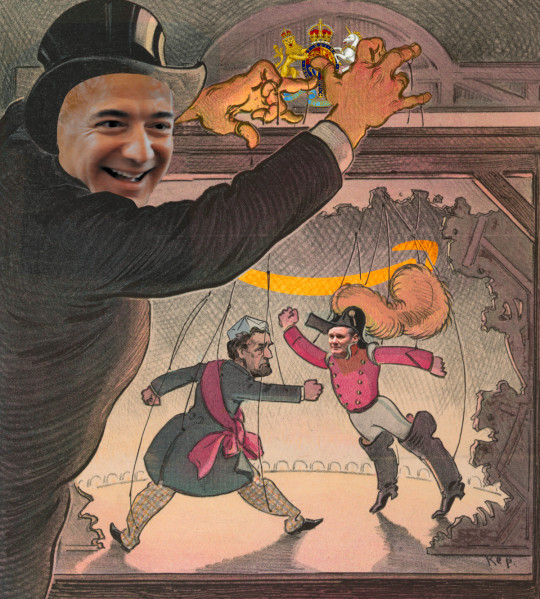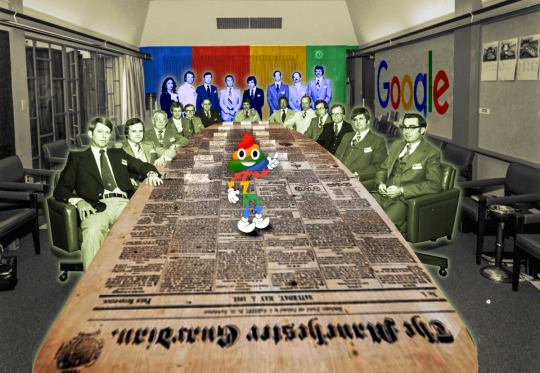#Market Competitiveness
Explore tagged Tumblr posts
Text
#video#videos#blackrock#capitalism#market competition#market competitiveness#fascism#oppression#repression#ausgov#politas#auspol#tasgov#taspol#australia#fuck neoliberals#neoliberal capitalism#anthony albanese#albanese government
4 notes
·
View notes
Text
Apple's iPhone 17 Air Faces Design Challenges Amid Battery Development Issues
Apple’s forthcoming iPhone 17 Air may not achieve the previously speculated slimness. Reports indicate that the company has encountered obstacles in developing a high-density battery essential for maintaining a sleek design. The production of the advanced battery has proven costly, with a notable scarcity of defect-free units. Consequently, the iPhone 17 Air is expected to exceed 7mm in…
#apple#Apple&039;s iPhone 17 Air Faces Design Challenges Amid Battery Development Issues#battery development#design challenges#device thickness.#high-density battery#iPhone 17 Air#market competitiveness#OLED ProMotion display#Samsung Galaxy S25 Slim#ultra-thin design
1 note
·
View note
Text
Understanding Dividend Distribution Tax (DDT): How Its Abolition Revolutionizes the Indian Economy: Budget 2024
Introduction The concept of dividends and the Dividend Distribution Tax (DDT) underwent significant changes in India with the abolition of DDT in the 2020-21 Budget. Dividends are payments made by companies to shareholders from their profits. DDT, introduced in the Finance Act of 1997, was a tax levied on these dividends distributed by domestic companies, irrespective of their income tax…

View On WordPress
#investor sentiment#global taxation norms#Dividend Distribution Tax#DDT abolition#foreign direct investment#FDI#tax policy#corporate profits#tax reform#Finance Act 1997#tax simplification#dividend policies#government revenue#reinvestment#Budget 2020-21#market competitiveness#shareholder taxation#Nirmala Sitharaman#Indian Economy#economic growth#tax compliance#tax administration
0 notes
Text
How Our Food Delivery App Development Services Can Transform Your BusinessIn today’s fast-paced world, convenience is king. With the increasing demand for quick and efficient food delivery, businesses need to adapt to stay competitive. Our Food Delivery App Development Services offer the perfect solution to transform your business and meet the evolving needs of your customers.Custom Solutions for Every NeedWe understand that each business is unique. That's why we provide customized app solutions tailored to your specific requirements. Whether you're a small restaurant or a large food chain, our apps are designed to streamline operations, improve efficiency, and enhance the overall customer experience.Enhanced Customer EngagementOur apps are built with user-friendly interfaces and intuitive features that keep customers engaged. Features like real-time order tracking, personalized recommendations, and secure payment gateways ensure a seamless and enjoyable experience for your customers, encouraging repeat business and loyalty.Boost Your Sales and EfficiencyBy integrating advanced technology, our apps help you manage orders, inventory, and deliveries more efficiently. This not only reduces operational costs but also increases order accuracy and delivery speed, leading to higher customer satisfaction and increased sales.Stay Ahead of the CompetitionIn the competitive food industry, having a robust delivery app can set you apart from the rest. Our apps are designed with the latest features and innovations to ensure you stay ahead of the curve and continuously meet the demands of your tech-savvy customers.Ready to transform your business with our Food Delivery App Development Services?[Read more]
#FoodDelivery#AppDevelopment#GreySpaceComputing#BusinessGrowth#TechInnovation#CustomerEngagement#FoodDeliveryapp#Food Delivery App Development#Transform Your Business#Mobile App Solutions#Custom App Development#Restaurant Technology#Delivery App Innovation#Business Growth Strategies#Customer Engagement#Tech-Driven Services#Market Competitiveness
0 notes
Text
Keir Starmer appoints Jeff Bezos as his “first buddy”

Picks and Shovels is a new, standalone technothriller starring Marty Hench, my two-fisted, hard-fighting, tech-scam-busting forensic accountant. You can pre-order it on my latest Kickstarter, which features a brilliant audiobook read by Wil Wheaton.

Turns out Donald Trump isn't the only world leader with a tech billionaire "first buddy" who gets to serve as an unaccountable, self-interested de facto business regulator. UK PM Keir Starmer has just handed the keys to the British economy over to Jeff Bezos.
Oh, not literally. But here's what's happened: the UK's Competitions and Markets Authority, an organisation charged with investigating and punishing tech monopolists (like Amazon) has just been turned over to Doug Gurr, the guy who used to run Amazon UK.
This is – incredibly – even worse than it sounds. Marcus Bokkerink, the outgoing head of the CMA, was amazing, and he had charge over the CMA's Digital Markets Unit, the largest, best-staffed technical body of any competition regulator, anywhere in the world. The DMU uses its investigatory powers to dig deep into complex monopolistic businesses like Amazon, and just last year, the DMU was given new enforcement powers that would let it custom-craft regulations to address tech monopolization (again, like Amazon's).
But it's even worse. The CMA and DMU are the headwaters of a global system of super-effective Big Tech regulation. The CMA's deeply investigated reports on tech monopolists are used as the basis for EU regulations and enforcement actions, and these actions are then re-run by other world governments, like South Korea and Japan:
https://pluralistic.net/2024/04/10/an-injury-to-one/#is-an-injury-to-all
The CMA is the global convener and ringleader in tech antitrust, in other words. Smaller and/or poorer countries that lack the resources to investigate and build a case against US Big Tech companies have been able to copy-paste the work of the CMA and hold these companies to account. The CMA invites (or used to invite) all of these competition regulators to its HQ in Canary Wharf for conferences where they plan global strategy against these monopolists:
https://www.eventbrite.co.uk/e/cma-data-technology-and-analytics-conference-2022-registration-308678625077
Firing the guy who is making all this happening and replacing him with Amazon's UK boss is a breathtaking display of regulatory capture by Starmer, his business secretary Jonathan Reynolds, and his exchequer, Rachel Reeves.
But it gets even worse, because Amazon isn't just any tech monopolist. Amazon is a many-tentacled kraken built around an e-commerce empire. Antitrust regulators elsewhere have laid bare how Amazon uses that retail monopoly to take control over whole economies, while raising prices and crushing small businesses.
To understand Amazon's market power, first you have to understand "monopsonies" – markets dominated by buyers (monopolies are markets dominated by sellers – Amazon is both a monopolist and a monopsonist). Monopsonies are far more dangerous than monopolies, because they are easier to establish and easier to defend against competitors. Say a single retailer accounts for 30% of your sales: there isn't a business in the world that can survive an overnight 30% drop in sales, so that 30% market share might as well be 100%. Once your order is big enough that canceling it would bankrupt your supplier, you have near-total control over that supplier.
Amazon boasts about this. They call it "the flywheel": Amazon locks in shoppers (by getting them to prepay for a year's worth of shipping in advance, via Prime). The fact that a business can't sell to a large proportion of households if it's not on Amazon gives Amazon near-total power over that business. Amazon uses that power to demand discounts and charge junk fees to the businesses that rely on it. This allows it to lower prices, which brings in more customers, which means that even more businesses have to do business with Amazon to stay afloat:
https://vimeo.com/739486256/00a0a7379a
That's Amazon's version, anyway. In reality, it's a lot scuzzier. Amazon doesn't just demand deep discounts from its suppliers – it demand unsustainable discounts from them. For example, Amazon targeted small publishers with a program called the "Gazelle Project." Jeff Bezos told his negotiators to bring down these publishers "the way a cheetah would pursue a sickly gazelle":
https://archive.nytimes.com/bits.blogs.nytimes.com/2013/10/22/a-new-book-portrays-amazon-as-bully/
The idea was to get a bunch of cheap books for the Kindle to help it achieve critical mass, at the expense of driving these publishers out of business. They were a kind of disposable rocket stage for Amazon.
Deep discounts aren't the only way that Amazon feeds off its suppliers: it also lards junk-fee atop junk-fee. For every pound Amazon makes from its customers, it rakes in 45-51p in fees:
https://pluralistic.net/2023/11/29/aethelred-the-unready/#not-one-penny-for-tribute
Now, just like there's no business that can survive losing 30% of its sales overnight, there's also no business that can afford to hand 45-51% of its gross margin to a retailer. For businesses to survive at all on Amazon, they have to jack their prices up – way up. However, Amazon has an anticompetitive deal called "most favoured nation status" that forces suppliers to sell their goods on Amazon at the same price as they sell them elsewhere (even from their own stores). So when companies raise their prices in order to pay ransom to Amazon, they have to raise their prices everywhere. Far from being a force for low prices, Amazon makes prices go up everywhere, from the big Tesco's to the corner shop:
https://pluralistic.net/2023/04/25/greedflation/#commissar-bezos
Amazon makes so much money off of this scam that it doesn't have to pay anything to ship its own goods – the profits from overcharging merchants for "fulfillment by Amazon" pay for all the shipping, on everything Amazon sells:
https://cdn.ilsr.org/wp-content/uploads/2023/03/AmazonMonopolyTollbooth-2023.pdf
Amazon competes with its own sellers, but unlike those sellers, it doesn't have to pay a 45-51% rake – and it can make its competitor-customers cover the full cost of its own shipping! On top of that, Amazon maintains the pretense that its headquarters are in Luxembourg, the tax- and crime-haven, and pays a fraction of the taxes that British businesses pay to HMRC (and that's not counting the 45-51% tax they pay to Jeff Bezos's monoposony).
That's not the only way that Amazon unfairly competes with British businesses, though: Amazon uses its position as a middleman between buyers and sellers to identify the most successful products sold by its own customers. Then it copies those products and sells them below the original inventor's costs (because it gets free shipping, pays no tax, and doesn't have to pay its own junk fees), and drives those businesses into the ground. Even Jeff "Project Gazelle" Bezos seems to understand that this is a bad look, which is why he perjured himself to the American Congress when he was questioned under oath about it:
https://www.bbc.com/news/business-58961836
Amazon then places its knockoff products above the original goods on its search results page. Amazon makes $38b selling off placement on these search pages, and the top results for an Amazon search aren't the best matches for your query – they're the ones that pay the most. On average, Amazon's top result for a search is 29% more expensive than the best match on the site. On average, the top row of results is 25% more expensive than the best match on the site. On average, Amazon buries the best result for your search 17 places down the results page:
https://pluralistic.net/2023/11/03/subprime-attention-rent-crisis/#euthanize-rentiers
Amazon, in other words, acts like the business regulator for the economies it dominates. It decides what can be sold, and at what prices. It decides whose products come up when you search, and thus which businesses deserve to live and which ones deserve to die. An economy dominated by Amazon isn't a market economy – it's a planned economy, run by Party Secretary Bezos for the benefit of Amazon's shareholders.
Now, there is a role for a business regulator, because some businesses really don't deserve to live (because they sell harmful products, engage in deceptive practices, etc). The UK has a regulator that's in charge of this stuff: the Competition and Markets Authority, which is now going to be run by Jeff Bezos's hand-picked UK Amazon boss. That means that Amazon is now both the official and the unofficial central planner of the UK economy, with a free hand to raise prices, lower quality, and destroy British businesses, while hiding its profits in Luxemourg and starving the exchequer of taxes.
The "first buddy" role that Keir Starmer just handed over to Jeff Bezos is, in every way, more generous than the first buddy deal Trump gave Elon Musk.
Starmer's government claims they're doing this for "growth" but Amazon isn't a force for growth, it's force for extraction. It is a notorious underpayer of its labour force, a notorious tax-cheat, and a world-beating destroyer of local economies, local jobs, and local tax bases. Contrary to Amazon's own self-mythologizing, it doesn't deliver lower prices – it raises prices throughout the economy. It doesn't improve quality – this is a company whose algorithmic recommendation system failed to recognize that an "energy drink" was actually its own drivers' bottled piss, which it then promoted until it was the best-selling energy drink on the platform:
https://pluralistic.net/2023/10/20/release-energy/#the-bitterest-lemon
There's a reason that the UK, the EU, Japan and South Korea found it so easy to collaborate on antitrust cases against American companies: these are all countries whose competition law was rewritten by American technocrats during the Marshall Plan, modeled on the US's own laws. The bedrock of US competition law is 1890's Sherman Act, whose author, Senator John Sherman, declared that:
If we will not endure a King as a political power we should not endure a King over the production, transportation, and sale of the necessaries of life. If we would not submit to an emperor we should not submit to an autocrat of trade with power to prevent competition and to fix the price of any commodity.
https://pluralistic.net/2022/02/20/we-should-not-endure-a-king/
Jeff Bezos is the autocrat of trade that John Sherman warned us about, 135 years ago. And Keir Starmer just abdicated in his favour.

Check out my Kickstarter to pre-order copies of my next novel, Picks and Shovels!

If you'd like an essay-formatted version of this post to read or share, here's a link to it on pluralistic.net, my surveillance-free, ad-free, tracker-free blog:
https://pluralistic.net/2025/01/22/autocrats-of-trade/#dingo-babysitter

Image: UK Parliament/Maria Unger (modified) https://commons.wikimedia.org/wiki/File:Keir_Starmer_2024.jpg
CC BY 3.0 https://creativecommons.org/licenses/by/3.0/deed.en
--
Steve Jurvetson (modified) https://commons.wikimedia.org/wiki/File:Jeff_Bezos%27_iconic_laugh.jpg
CC BY 2.0 https://creativecommons.org/licenses/by/2.0/deed.en
#pluralistic#cma#competition and markets authority#dmu#digital markets unit#guillotine watch#silicon roundabout#Marcus Bokkerink#doug gurr#industrial policy henhouse foxes#dingo babysitters#ukpoli#labour#competition#antitrust#trustbusting#marshall plan#Jonathan Reynolds#regulatory capture#keir starmer
312 notes
·
View notes
Text
Allegations of price collusions among the potato cartel reveal the new, sophisticated methods food corporations are using to keep prices high.
126 notes
·
View notes
Text

#salamence#THIS one is a good one. someone else mentioned the chin and claimed they look like lord farquaad. and would say “why YES this is Divine” and#i didn't like how accurate that was. anyway dragon/flying 4x weakness to ice my belovèd. if anyone says ice is bad#keep in mind how much of the competitive landscape it totally nullifies. ice is like. probably my second favorite type. behind electric#even though none of this is about salamence. they've got the whole primary colors thing going on but minus yellow#red and blue. red white and blue. american pokémon? big red wings that're just Flat. i really dunno what's happening here i just know it's#supposed to be really good in competitive. and also they got a paradox form which i Guess TPC is trying to market as totally new unrelated#pokémon but i'm always going to call them “paradox hariyama” and such instead of ~iron hands~ or whatever they're supposed to be called#don't want my pokémon names to have two words in them……
692 notes
·
View notes
Text
"Thereafter escaping from the Orcs Beren dwelt still in those lands as a solitary outlaw for four years, and did such deeds of single-handed daring that Morgoth put a price on his head no less than upon the head of Fingon King of the Noldor."
There is a lot going on here but I frankly cannot stop thinking about Morgoth putting prices on people's heads. Like, what is the price? Money?? Is Sauron printing coins in Angband as a side hussle? Does anybody at this point trust Morgoth to keep a promise like money/lands/whatever the fuck that price is, considering the countless infamous stories of Morgoth Not Keeping His Word EverTM? Do people who are desperate bring by heads of people who they think look similar??? Like I have QuestionsTM! how does Mafia Boss Morgoth work what's the details are there wanted posters? Do people collect wanted posters?? Hell I want a wanted poster. damn it
#*mine#mona rambles#tolkien#morgoth#beren#fingon#silm#is there a black market of people trading wanted posters. what's angband's communication strategy here#are there light- to not-so-light-hearted bragging competitions on who has the highest price on their head#who is the most insufferable and why is it fingon <3
51 notes
·
View notes
Text



Some sketches inspired by @theunqualified1's fic Chalk It Up To Luck You can find some more drawings for this AU here
also little bonus bc i had to figure out their uniforms:

#critical role#critical role c3#imogen temult#laudna cr#imodna#my art#my stuff#Chalk It Up To Luck fic#drawing things for this au was so much fun#and figuring out the uniforms was also nice#don't know shit about bouldering tho so don't come for me pls#anyway some little details about this#the symbol on the chest of their uniform is the republic of tal'dorei's symbol#and i think you guys can recognize most of the things on the backdrop of the interview but#it's the m9 logo the ashari symbol the moons ofc#and that big A is a market thing#since that competition takes place in market#i found this handy little chart on the wiki with a bunch of exandria's symbols in it and that was very helpful
87 notes
·
View notes
Text











chinese guzhuang fashion
#young actress and actors are cornering the guzhuang market#that's why the industry is becoming more and more competitive#when it comes to guzhuang idol dramas/guouju古偶剧 with fantasy elements(like xianxia dramas)#cnetizens are bored with the same old faces#media has found that young actress and actors (20-27 years old) especially new pretty faces are more appealing to viewers#cnetizens can actually be mean to actress and actors (over 33 years old) cast as lead characters in guzhuang idol dramas#reasons is that lead characters are usually portrayed as teenagers or really young people#and the audience find it very weird to have middle-aged people cast such characters#especially scripts are usually adapted based on fictions#so fans of the novels would be furious about such casting#besides cnetizens want to see normal aging faces#but these shows always use excessive filters and PS#causing the midle-aged faces to be fake and weird#i once saw really mean comments on douyin for xianxia dramas casting middle-aged actress getting over one hundred thousand likes#actress and actors in zhengju正剧 guzhuang dramas or luodi落地 guzhuang dramas are not affected by this#like telling a realistic down-to-earth story or story inspired by real history or related to folks#and there is no fantasy or xianxia elements#china#fashion#chinese fashion#guzhuang#cdramas
315 notes
·
View notes
Text






It's just, I only just got here again, and I'm--
I'm starving, too, like...
#greg hirsch#i went to market#all the bells say#tomgreg#this is clearly something greg says bc he's actively trying to show more self worth - but also as a beg for love#like 'give me a REASON'#tell me you don't just need me but WANT me#and what's interesting is that while these scenes basically yell to the audience Greg Is Important To The Plot#both scenes also make it clear that greg is not in fact important in the way he's claiming to be#kendall makes a point of getting ewan a ride but NOT for greg's sake - it's entirely for his own benefit#bc of a larger plan that greg has nothing to do with#and in all the bells say greg wants to assert that tom has competition wrt keeping him#and tom shoots down that competition#but the truth is there really wasn't any. greg is important - a big deal - ONLY to tom#tom's the one who will choose him and keep him fed and treat him as someone important#mine
37 notes
·
View notes
Note
Good luck with exams!
Waaah anon!
I graduated college a while ago, so I'm finals/exams free lol the one paper I was agonizing over was for a 6 month course I was forced to take by my current employer lol but like, it was that one final assignment so I can get a certificate that I did + passed the course so my employer can be happy about it
The place where I work at likes having it's team "up to date" with the new design and marketing stuff, so courses like this are pretty common, at least that's what my coworkers say lol
Anyway I WILL however pass on your lovely wishes to whoever is reading this who has finals/exams this week! Anon and I wish u best of luck, guys!
#I'm a graphic designer with a minor in marketing#and i work in the marketing team of a brand rn#i also have a master's in publishing but like I'm not working in publishinf rn (SAD)#i really wanna work in publishing but it's so competitive where i live oooough#one day i will put that master's to use lmao#miry's ask box
26 notes
·
View notes
Text

UK 1987
#UK1987#KEMPSTON#DYNBAMICS MARKETING LTD.#HARDWARE#CONTROLLERS#AMSTRAD#C64#ATARI400/800#AMIGA#ATARIst#COMPETITION PRO JOYSTICK
36 notes
·
View notes
Text
Ever notice how it's "most women have gone through sexual harassment and assault even though most men claim to not personally know any rapists, a high chance that all men cover for their predatory friends and should be held accountable" even with men who haven't committed sexual assault, but when it's time for women to be held accountable for supporting and dating rapists, it's "women are not responsible for men's actions"? I have...
#and women do absolutely benefit from rape because it's an effective way to remove competition on the “dating market”#an attractive woman gets a tad too traumatized after an event like that and can't stand men anymore#boom more chances for another woman to bag a man...
16 notes
·
View notes
Text
UK publishers suing Google for $17.4b over rigged ad markets

THIS WEEKEND (June 7–9), I'm in AMHERST, NEW YORK to keynote the 25th Annual Media Ecology Association Convention and accept the Neil Postman Award for Career Achievement in Public Intellectual Activity.

Look, no one wants to kick Big Tech to the curb more than I do, but, also: it's good that Google indexes the news so people can find it, and it's good that Facebook provides forums where people can talk about the news.
It's not news if you can't find it. It's not news if you can't talk about it. We don't call information you can't find or discuss "news" – we call it "secrets."
And yet, the most popular – and widely deployed – anti-Big Tech tactic promulgated by the news industry and supported by many of my fellow trustbusters is premised on making Big Tech pay to index the news and/or provide a forum to discuss news articles. These "news bargaining codes" (or, less charitably, "link taxes") have been mooted or introduced in the EU, France, Spain, Australia, and Canada. There are proposals to introduce these in the US (through the JCPA) and in California (the CJPA).
These US bills are probably dead on arrival, for reasons that can be easily understood by the Canadian experience with them. After Canada introduced Bill C-18 – its own news bargaining code – Meta did exactly what it had done in many other places where this had been tried: blocked all news from Facebook, Instagram, Threads, and other Meta properties.
This has been a disaster for the news industry and a disaster for Canadians' ability to discuss the news. Oh, it makes Meta look like assholes, too, but Meta is the poster child for "too big to care" and is palpably indifferent to the PR costs of this boycott.
Frustrated lawmakers are now trying to figure out what to do next. The most common proposal is to order Meta to carry the news. Canadians should be worried about this, because the next government will almost certainly be helmed by the far-right conspiratorialist culture warrior Pierre Poilievre, who will doubtless use this power to order Facebook to platform "news sites" to give prominence to Canada's rotten bushel of crypto-fascist (and openly fascist) "news" sites.
Americans should worry about this too. A Donald Trump 2028 presidency combined with a must-carry rule for news would see Trump's cabinet appointees deciding what is (and is not) news, and ordering large social media platforms to cram the Daily Caller (or, you know, the Daily Stormer) into our eyeballs.
But there's another, more fundamental reason that must-carry is incompatible with the American system: the First Amendment. The government simply can't issue a blanket legal order to platforms requiring them to carry certain speech. They can strongly encourage it. A court can order limited compelled speech (say, a retraction following a finding of libel). Under emergency conditions, the government might be able to compel the transmission of urgent messages. But there's just no way the First Amendment can be squared with a blanket, ongoing order issued by the government to communications platforms requiring them to reproduce, and make available, everything published by some collection of their favorite news outlets.
This might also be illegal in Canada, but it's harder to be definitive. The Canadian Charter of Rights and Freedoms was enshrined in 1982, and Canada's Supreme Court is still figuring out what it means. Section Two of the Charter enshrines a free expression right, but it's worded in less absolute terms than the First Amendment, and that's deliberate. During the debate over the wording of the Charter, Canadian scholars and policymakers specifically invoked problems with First Amendment absolutism and tried to chart a middle course between strong protections for free expression and problems with the First Amendment's brook-no-exceptions language.
So maybe Canada's Supreme Court would find a must-carry order to Meta to be a violation of the Charter, but it's hard to say for sure. The Charter is both young and ambiguous, so it's harder to be definitive about what it would say about this hypothetical. But when it comes to the US and the First Amendment, that's categorically untrue. The US Constitution is centuries older than the Canadian Charter, and the First Amendment is extremely definitive, and there are reams of precedent interpreting it. The JPCA and CJPA are totally incompatible with the US Constitution. Passing them isn't as silly as passing a law declaring that Pi equals three or that water isn't wet, but it's in the neighborhood.
But all that isn't to say that the news industry shouldn't be attacking Big Tech. Far from it. Big Tech compulsively steals from the news!
But what Big Tech steals from the news isn't content.
It's money.
Big Tech steals money from the news. Take social media: when a news outlet invests in building a subscriber base on a social media platform, they're giving that platform a stick to beat them with. The more subscribers you have on social media, the more you'll be willing to pay to reach those subscribers, and the more incentive there is for the platform to suppress the reach of your articles unless you pay to "boost" your content.
This is plainly fraudulent. When I sign up to follow a news outlet on a social media site, I'm telling the platform to show me the things the news outlet publishes. When the platform uses that subscription as the basis for a blackmail plot, holding my desire to read the news to ransom, they are breaking their implied promise to me to show me the things I asked to see:
https://www.eff.org/deeplinks/2023/06/save-news-we-need-end-end-web
This is stealing money from the news. It's the definition of an "unfair method of competition." Article 5 of the Federal Trade Commission Act gives the FTC the power to step in and ban this practice, and they should:
https://pluralistic.net/2023/01/10/the-courage-to-govern/#whos-in-charge
Big Tech also steals money from the news via the App Tax: the 30% rake that the mobile OS duopoly (Apple/Google) requires for every in-app purchase (Apple/Google also have policies that punish app vendors who take you to the web to make payments without paying the App Tax). 30% out of every subscriber dollar sent via an app is highway robbery! By contrast, the hyperconcentrated, price-gouging payment processing cartel charges 2-5% – about a tenth of the Big Tech tax. This is Big Tech stealing money from the news:
https://www.eff.org/deeplinks/2023/06/save-news-we-must-open-app-stores
Finally, Big Tech steals money by monopolizing the ad market. The Google-Meta ad duopoly takes 51% out of every ad-dollar spent. The historic share going to advertising "intermediaries" is 10-15%. In other words, Google/Meta cornered the market on ads and then tripled the bite they were taking out of publishers' advertising revenue. They even have an illegal, collusive arrangement to rig this market, codenamed "Jedi Blue":
https://en.wikipedia.org/wiki/Jedi_Blue
There's two ways to unrig the ad market, and we should do both of them.
First, we should trustbust both Google and Meta and force them to sell off parts of their advertising businesses. Currently, both Google and Meta operate a "full stack" of ad services. They have an arm that represents advertisers buying space for ads. Another arm represents publishers selling space to advertisers. A third arm operates the marketplace where these sales take place. All three arms collect fees. On top of that: Google/Meta are both publishers and advertisers, competing with their own customers!
This is as if you were in court for a divorce and you discovered that the same lawyer representing your soon-to-be ex was also representing you…while serving as the judge…and trying to match with you both on Tinder. It shouldn't surprise you if at the end of that divorce, the court ruled that the family home should go to the lawyer.
So yeah, we should break up ad-tech:
https://www.eff.org/deeplinks/2023/05/save-news-we-must-shatter-ad-tech
Also: we should ban surveillance advertising. Surveillance advertising gives ad-tech companies a permanent advantage over publishers. Ad-tech will always know more about readers' behavior than publishers do, because Big Tech engages in continuous, highly invasive surveillance of every internet user in the world. Surveillance ads perform a little better than "content-based ads" (ads sold based on the content of a web-page, not the behavior of the person looking at the page), but publishers will always know more about their content than ad-tech does. That means that even if content-based ads command a slightly lower price than surveillance ads, a much larger share of that payment will go to publishers:
https://www.eff.org/deeplinks/2023/05/save-news-we-must-ban-surveillance-advertising
Banning surveillance advertising isn't just good business, it's good politics. The potential coalition for banning surveillance ads is everyone who is harmed by commercial surveillance. That's a coalition that's orders of magnitude larger than the pool of people who merely care about fairness in the ad/news industries. It's everyone who's worried about their grandparents being brainwashed on Facebook, or their teens becoming anorexic because of Instagram. It includes people angry about deepfake porn, and people angry about Black Lives Matter protesters' identities being handed to the cops by Google (see also: Jan 6 insurrectionists).
It also includes everyone who discovers that they're paying higher prices because a vendor is using surveillance data to determine how much they'll pay – like when McDonald's raises the price of your "meal deal" on your payday, based on the assumption that you will spend more when your bank account is at its highest monthly level:
https://pluralistic.net/2024/06/05/your-price-named/#privacy-first-again
Attacking Big Tech for stealing money is much smarter than pretending that the problem is Big Tech stealing content. We want Big Tech to make the news easy to find and discuss. We just want them to stop pocketing 30 cents out of every subscriber dollar and 51 cents out of ever ad dollar, and ransoming subscribers' social media subscriptions to extort publishers.
And there's amazing news on this front: a consortium of UK web-publishers called Ad Tech Collective Action has just triumphed in a high-stakes proceeding, and can now go ahead with a suit against Google, seeking damages of GBP13.6b ($17.4b) for the rigged ad-tech market:
https://www.reuters.com/technology/17-bln-uk-adtech-lawsuit-against-google-can-go-ahead-tribunal-rules-2024-06-05/
The ruling, from the Competition Appeal Tribunal, paves the way for a frontal assault on the thing Big Tech actually steals from publishers: money, not content.
This is exactly what publishing should be doing. Targeting the method by which tech steals from the news is a benefit to all kinds of news organizations, including the independent, journalist-owned publishers that are doing the best news work today. These independents do not have the same interests as corporate news, which is dominated by hedge funds and private equity raiders, who have spent decades buying up and hollowing out news outlets, and blaming the resulting decline in readership and profits on Craiglist.
You can read more about Big Finance's raid on the news in Margot Susca's Hedged: How Private Investment Funds Helped Destroy American Newspapers and Undermine Democracy:
https://www.press.uillinois.edu/books/?id=p087561
You can also watch/listen to Adam Conover's excellent interview with Susca:
https://www.youtube.com/watch?v=N21YfWy0-bA
Frankly, the looters and billionaires who bought and gutted our great papers are no more interested in the health of the news industry or democracy than Big Tech is. We should care about the news and the workers who produce the news, not the profits of the hedge-funds that own the news. An assault on Big Tech's monetary theft levels the playing field, making it easier for news workers and indies to compete directly with financialized news outlets and billionaire playthings, by letting indies keep more of every ad-dollar and more of every subscriber-dollar – and to reach their subscribers without paying ransom to social media.
Ending monetary theft – rather than licensing news search and discussion – is something that workers are far more interested in than their bosses. Any time you see workers and their bosses on the same side as a fight against Big Tech, you should look more closely. Bosses are not on their workers' side. If bosses get more money out of Big Tech, they will not share those gains with workers unless someone forces them to.
That's where antitrust comes in. Antitrust is designed to strike at power, and enforcers have broad authority to blunt the power of corporate juggernauts. Remember Article 5 of the FTC Act, the one that lets the FTC block "unfair methods of competition?" FTC Chair Lina Khan has proposed using it to regulate training AI, specifically to craft rules that address the labor and privacy issues with AI:
https://www.youtube.com/watch?v=3mh8Z5pcJpg
This is an approach that can put creative workers where they belong, in a coalition with other workers, rather than with their bosses. The copyright approach to curbing AI training is beloved of the same media companies that are eagerly screwing their workers. If we manage to make copyright – a transferrable right that a worker can be forced to turn over their employer – into the system that regulates AI training, it won't stop training. It'll just trigger every entertainment company changing their boilerplate contract so that creative workers have to sign over their AI rights or be shown the door:
https://pluralistic.net/2024/05/13/spooky-action-at-a-close-up/#invisible-hand
Then those same entertainment and news companies will train AI models and try to fire most of their workers and slash the pay of the remainder using those models' output. Using copyright to regulate AI training makes changes to who gets to benefit from workers' misery, shifting some of our stolen wages from AI companies to entertainment companies. But it won't stop them from ruining our lives.
By contrast, focusing on actual labor rights – say, through an FTCA 5 rulemaking – has the potential to protect those rights from all parties, and puts us on the same side as call-center workers, train drivers, radiologists and anyone else whose wages are being targeted by AI companies and their customers.
Policy fights are a recurring monkey's paw nightmare in which we try to do something to fight corruption and bullying, only to be outmaneuvered by corrupt bullies. Making good policy is no guarantee of a good outcome, but it sure helps – and good policy starts with targeting the thing you want to fix. If we're worried that news is being financially starved by Big Tech, then we should go after the money, not the links.

If you'd like an essay-formatted version of this post to read or share, here's a link to it on pluralistic.net, my surveillance-free, ad-free, tracker-free blog:
https://pluralistic.net/2024/06/06/stealing-money-not-content/#content-free
#pluralistic#competition#advertising#surveillance advertising#saving the news from big tech#link taxes#trustbusting#competition and markets authority#uk#ukpoli#Ad Tech Collective Action#digital markets unit#Competition Appeal Tribunal
585 notes
·
View notes
Text
do you 🫵 like this gas station. I think it's special in its own little ways
#kommento#// oooowelcome every body .nno i dont check the market competition i get too lazy#// watchinf the company stock prices can be fun though yayyy yipppppueue .roler coasyer#// if i get to finish this one wriitng wip that wojld be so crazy#// i should write ooc googoo gaga shit some time actualy. makes my own product bootlegs hooray
8 notes
·
View notes